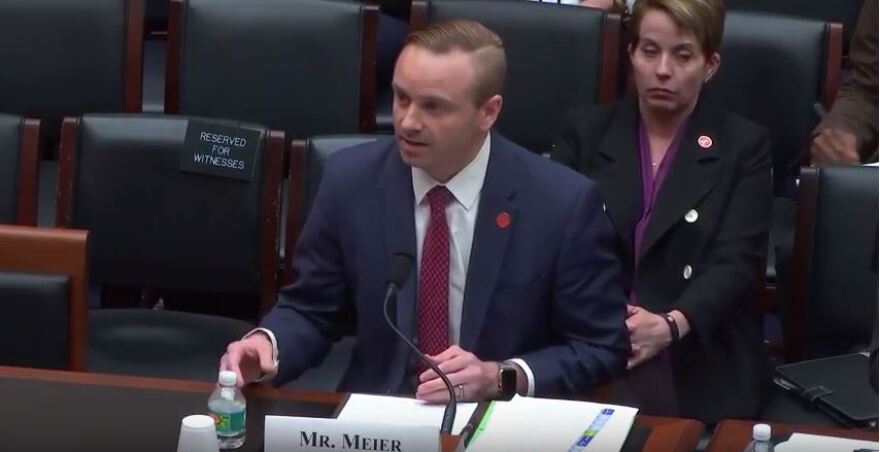Kentucky’s top health official says the state will cut benefits to Medicaid recipients if a federal court strikes down changes to the program set to roll out on July 1.
Gov. Matt Bevin got permission from the Trump administration to require “able-bodied” Medicaid recipients to pay monthly premiums and prove that they are working, volunteering, a full-time student or trying to find work in order to keep their health coverage.
But a lawsuit brought by 16 low-income Kentuckians argues that Bevin’s changes violate Congress’ original intent for the Medicaid program and that the governor is just trying to cut people from the program.
Adam Meier, secretary of the Kentucky Cabinet for Health and Family Services, said if the court blocks the Medicaid changes, the state will cut benefits.
“Probably right away dental and vision would be removed from the low income adult group, likely pharmacy as well,” Meier said during a legislative hearing on Wednesday.
“Kentucky HEALTH is our plan, is our way of maintaining expansion, maintaining coverage and maintaining access, so without having the waiver approved, we lose our ability to do that effectively.”
Arguments over the lawsuit were heard in U.S. District Court in Washington, D.C. last week and a ruling is expected before the changes are implemented on July 1.
The new requirements will be initially rolled out in Northern Kentucky over the summer — in Campbell County on July 1, Boone County on Aug. 1 and Kenton County on Sept 1.
The changes will roll out across the rest of the state throughout the fall.
Kentucky officials say that without the changes, the state won’t be able to afford to pay for the expanded Medicaid population — about 400,000 people who got benefits when former Gov. Steve Beshear made more people eligible for the program under the Affordable Care Act.
Currently the federal government picks up the tab for 95 percent of the cost of the expansion; that matching rate will drop to 90 percent in 2020.
Initially, Bevin said that the Medicaid changes would save the state about $330 million over five years.
But lately, Bevin has avoided talking about whether the program would save the state any money, in January saying “the savings is the least of the concerns at this point.”
“I don’t even know what it would be nor do I really care what the savings will be," Bevin said. "Here’s what I want: I want individuals to be able to take control of their own lives."
Bevin said that the program will make people on Medicaid healthier by requiring them to do more to earn benefits.
Bevin’s changes also remove vision and dental coverage for the expansion population, but benefits can be restored by participating in programs like smoking cessation and preventative care.
Bevin filed an executive order earlier this year that would end the Medicaid expansion if a court blocks the changes. The termination would go into effect within 6 months after the final appeal.





